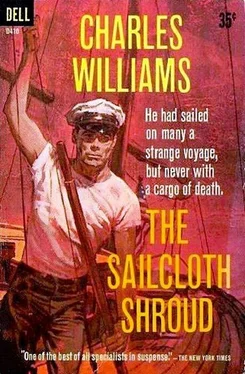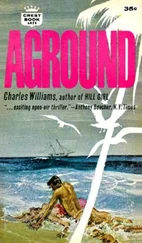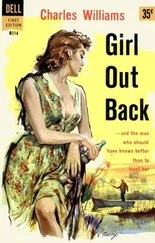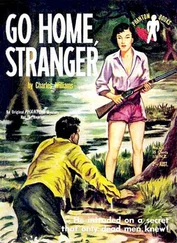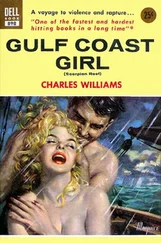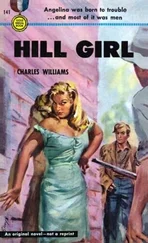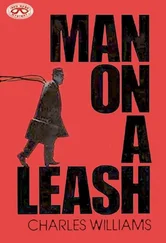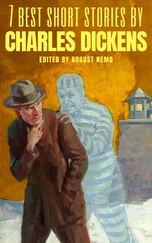Charles Williams - The Sailcloth Shroud
Здесь есть возможность читать онлайн «Charles Williams - The Sailcloth Shroud» весь текст электронной книги совершенно бесплатно (целиком полную версию без сокращений). В некоторых случаях можно слушать аудио, скачать через торрент в формате fb2 и присутствует краткое содержание. Год выпуска: 2010, Жанр: Старинная литература, на английском языке. Описание произведения, (предисловие) а так же отзывы посетителей доступны на портале библиотеки ЛибКат.
- Название:The Sailcloth Shroud
- Автор:
- Жанр:
- Год:2010
- ISBN:нет данных
- Рейтинг книги:3 / 5. Голосов: 1
-
Избранное:Добавить в избранное
- Отзывы:
-
Ваша оценка:
- 60
- 1
- 2
- 3
- 4
- 5
The Sailcloth Shroud: краткое содержание, описание и аннотация
Предлагаем к чтению аннотацию, описание, краткое содержание или предисловие (зависит от того, что написал сам автор книги «The Sailcloth Shroud»). Если вы не нашли необходимую информацию о книге — напишите в комментариях, мы постараемся отыскать её.
The Sailcloth Shroud — читать онлайн бесплатно полную книгу (весь текст) целиком
Ниже представлен текст книги, разбитый по страницам. Система сохранения места последней прочитанной страницы, позволяет с удобством читать онлайн бесплатно книгу «The Sailcloth Shroud», без необходимости каждый раз заново искать на чём Вы остановились. Поставьте закладку, и сможете в любой момент перейти на страницу, на которой закончили чтение.
Интервал:
Закладка:
“He was unhappy, though,” she went on. “I think desperately unhappy. I could sense it, even though we couldn’t talk to each other the way we used to. I saw him only once a year, when I went out there for two weeks after school was out. We both tried very hard, but I guess it’s a special kind of country that fathers and very young daughters live in, and once you leave it you can never go back. We’d play golf, and go riding, and skeet shooting, and he’d take me to parties, but the real lines of communication were down.”
She realized that he hated the desert. He was in the wrong world, and he was too old now to go somewhere else and start over. She didn’t think he drank much; he simply wasn’t the type for it. But she thought there were lots of girls, each one probably progressively younger, and trips to Las Vegas, even though he would have to be careful about that in the banking business.
She was a senior in college that January in 1956 when the call came from the sheriff’s office. She flew out to Phoenix. “I was afraid,” she went on, “and so was Grandfather. Neither of us believed they’d ever find him alive. Suicide was in our minds, though for different reasons. Grandfather was afraid he’d got in trouble again. That he’d taken money from the bank.”
“But he hadn’t?” I asked.
“No,” she said. “Naturally, it would have been discovered if he had. He even had several hundred dollars in his own account, and almost a month’s salary due him.”
There you are, I thought; it was an absolutely blank wall. He hadn’t stolen from the bank, but he’d deliberately disappeared. And when he showed up a month later as Brian Hardy he was rich.
She had fallen silent. I lighted a cigarette. Well, this must be the end of the line; I might as well call the FBI. Then she said quietly, “Would you tell me about it?”
I told her, playing down the pain of the heart attack and making it as easy for her as I could. I explained about the split mains’l and being becalmed, and the fact that I had no choice but to bury him at sea. Without actually lying about it I managed to gloss over the sketchy aspect of the funeral and the fact that I hadn’t known all the sea-burial service. I told her it was Sunday, and gave the position, and tried to tell her what kind of day it was. She gave a little choked cry and turned her face away, and I looked down at my cigarette when she got up abruptly and went out in the kitchen. I sat there feeling rotten. Even with all the trouble he’d got me into, I’d liked him, and I was beginning to like her.
Well, I’d known all along it wasn’t going to be easy when I had to face his family and tell them about it. And it was even worse now because, while she knew in her heart that it was her father, there could never be any final proof. That little residue of doubt would always remain, along with all the unanswerable questions. Was he lying somewhere out in the desert, or under two miles of water in the Caribbean Sea? And wherever he was, why was he there? What had happened? What was he running from?
Then suddenly it was back again, that strange feeling of uneasiness that always came over me when I remembered the moment of his burial, that exact instant in which I’d stood at the rail and watched his body slide into the depths. There was no explanation for it. I didn’t even know what it was. When I reached for it, it was gone, like a bad dream only partly remembered, and all that was left was this formless dread that something terrible was going to happen, or already had. I tried to shrug it off. Maybe it had been a premonition. Why keep worrying about it now? I’d already got all the bad news.
She came back in a minute, and if she’d been crying she had carefully erased the evidence. She was carrying two bottles of Coke from the refrigerator. “What are you going to do now?” she asked.
“I don’t know,” I said. “Call the FBI, I suppose. I’d rather try convincing them than those gorillas. Oh. I suppose this is pretty hopeless, but did you ever hear of a man called Bonner? J. R. Bonner?” The name would be phony, of course. I described him.
She shook her head. “No. I’m sorry.”
“I hate to drag you into this,” I said, “but I’ll have to tell them. There’ll probably be an investigation of your father.”
“It can’t be helped,” she said.
I lighted a cigarette. “You’re the only one so far who hasn’t accused me of killing him, stealing his money, or putting him ashore and lying about his death. Don’t you think I did, or are you just being polite?”
She gave me a brief smile. “I don’t believe you did. It’s just occurred to me that I know you—at least by reputation. Some friends of mine in Lynn speak very highly of you.”
“Who?” I asked.
“Ted and Frances Holt. They’ve sailed with you two or three times.”
“For the past three years,” I said. “They’ve shot some terrific under-water movies around the Exumas.”
“I suppose one of us really ought to say it’s a small world,” she mused. “Mr. Rogers—”
“Stuart,” I said.
“Stuart. Why doesn’t anybody seem to think this man Keefer could have taken all that money—assuming it was even aboard? He seems to have had a sizable amount nobody can explain.”
“They’d have found it,” I said. “When they add up what was in the hotel safe and what he conceivably spent, it still comes out to less than four thousand, and not even a drunk could throw away nineteen thousand dollars in three days. But the big factor is that he couldn’t have had it with him when he left the boat. I was right there. He didn’t have any luggage, you see, because all his gear was still on that ship he’d missed in Panama. He’d bought a couple of pairs of dungarees for the trip, but I was standing right beside him when he rolled those up, and he didn’t put anything in them. And he didn’t have a coat. He might have stowed four thousand dollars in his wallet and in the pockets of his slacks, but not twenty-three thousand, unless it was in very large bills. Which I doubt. A man running and trying to hide out would attract a lot of attention trying to break anything larger than hundreds.”
“Maybe he took it ashore when you first docked.”
“No. I was with him then too.”
She frowned. “Then it must still be aboard the Topaz.”
“No,” I said. “It’s been searched twice. By experts.”
“Then that seems to leave only one other possibility,” she said. She paused, and then went on unhappily. “This “isn’t easy to say, under the circumstances, but do you suppose he could have been—unbalanced?”
“I don’t think so,” I said. “I did when I first read the letter, of course. I mean, he said he had twenty-three thousand with him, but nobody else ever saw it. He said he was going to ask me to put him ashore, but he never did. And the fact that he was going to wait and put a wild proposition like that to me after we got to sea didn’t sound very logical, either. A rational man would have realized how slim the chances were that anybody would go for it, and would have sounded me out before we sailed. But if you look at all these things again, you’re not so sure.
“He apparently did have some money with him. Four thousand, anyway. So if he had that much, maybe he had it all. And waiting till we got to sea to proposition me makes sense if you look at it correctly. If he brought it up before we sailed, I might refuse to take him at all. Getting out of the Canal Zone before this Slidell caught up with him was the number-one item. If he brought up the other thing later and I turned him down, at least he was out of Panama and safe for the moment.”
“So we wind up right where we started.”
Читать дальшеИнтервал:
Закладка:
Похожие книги на «The Sailcloth Shroud»
Представляем Вашему вниманию похожие книги на «The Sailcloth Shroud» списком для выбора. Мы отобрали схожую по названию и смыслу литературу в надежде предоставить читателям больше вариантов отыскать новые, интересные, ещё непрочитанные произведения.
Обсуждение, отзывы о книге «The Sailcloth Shroud» и просто собственные мнения читателей. Оставьте ваши комментарии, напишите, что Вы думаете о произведении, его смысле или главных героях. Укажите что конкретно понравилось, а что нет, и почему Вы так считаете.
